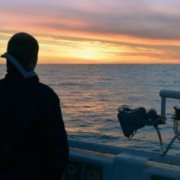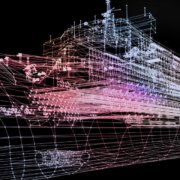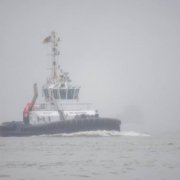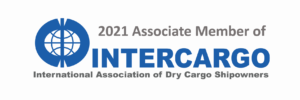Over the past few years the Tanker Management Self-Assessment (TMSA), the International Safety Management (ISM) code and other regulative bodies have added recommendations or regulations about the psychometric evaluation of seafarers, but there is still quite strong skepticism among the maritime industry.
Even with the application of Key Performance Indexes (KPIs) that include soft skills abilities for officers, there is little research, if any, about psychological safety precautions on seafarers. Because of the nature of the job, seafarers are among the first to experience occupational stress, burnout and various other psychological problems. Therefore, there is a wide misconception that an evaluation procedure will “force” companies to dismiss a large number of their seafarers. We, the companies and professionals who are providing this service, are partly to blame for this misconception, because we do not provide the necessary support and/or training.
Psychosocial risks in the workplace
The European Agency for Safety and Health at Work (EU-OSHA) has identified 12 psychosocial risks or psychological safety precautions:
1. Psychological Support
2. Organizational Culture
3. Clear Leadership & Expectations
4. Civility & Respect
5. Psychological Job Fit
6. Growth & Development
7. Recognition & Reward
8. Involvement & Influence
9. Workload Management
10. Engagement
11. Balance
12. Psychological Protection
13. Bulling
These factors relate to the content of and the context to work.
Let us see some examples of psychosocial risks that can be associated with the characteristics of the seafarer’s job description. One of the unique characteristics of seafarers is that while on board a vessel they work, rest, collaborate and interact all within the same space and with the same people. Hence they lack the advantage of being able to relax and take some time off from a person or situation that has stressed them.
Work schedule
Work schedule, including long working hours and shift work, has been related to work attitudes, such as job satisfaction and schedule satisfaction. Apart from these factors, it also includes, in seafarers, “the sense that I am always at work and this becomes annoying and frustrating.” In recent studies by ITC it has been concluded that fatigue is one of the major factors of accidents aboard vessels.
Environment and equipment
Experts have identified several characteristics of the physical environment (e.g. inadequate equipment availability, suitability or maintenance, lack of space, poor lighting and excessive noise) as psychosocial risk which can be experienced as stressful or a potential for harm.
Organizational culture and function
There are various aspects of organizational culture which can be experienced as stressful by workers and have the potential for harm. These include, notably, poor communication, poor leadership and lack of definition of, or agreement on, organizational objectives.
Interpersonal relationships at work
Bad interpersonal relationships at work are recognized psychosocial risks which can be experienced as stressful and have the potential for harm. These include: social or physical isolation, poor relationships with superiors, interpersonal conflict, lack of support, and bullying, harassment and violence at work. Especially on a vessel, where the people are confined on a limited space and interact all the time with each other, the above critical issues increase the possibility of problematic relationships in seafarers’ professional and personal life.
The risk management necessity and managing psychosocial risks
Managing and consequently preventing psychosocial risks can ensure a healthier, smoother running, more productive and safer working environment on board a vessel, where crises can be dealt easier, quicker and more effectively. At this point it is worth mentioning that in the E.U. alone the cost of accidents because of psychosocial risks was estimated in 2016 at 20 billion euros ($23 billion), an amount that could be saved if assessment and prevention measures had been taken. Also, insurance providers in Maritime like Lloyds have reported an increase on premiums because of the rise on accidents. Therefore proper measures to prevent those psychological risks from escalating can be a great value for money for the maritime industry.
One of the most practical models of risk management comprises the following steps:
• Identification of risks
• Assessment of the associated risk
• Design of reasonably practicable interventions
• Implementation of interventions
• Monitoring and evaluation of effectiveness of intervention
• Feedback and reassessment of risk
• Review of information and training needs of employees
Risk assessment
One of the essential drivers of continual improvement in the psychosocial work environment is the assessment of psychosocial risk factors. This does not include only the current mental and physical state of the examinee, but also the risk factors that could create a risk: mental, personal, occupational etc. Proper assessment is one of the cornerstones for prevention and, essentially, to have a crew on a vessel that is fully functional, not without problems, but with the necessary skills and abilities to effectively deal with them.
Risk assessment can also be applied to the promotion procedure. A seafarer who is about to be promoted might be fully trained for his new duties, but mentally and psychologically can be unable to fulfill them. A proper risk assessment can identify personality characteristics that need to be addressed in order to assist him/her become a better officer.
Over the past few years, ASCOT Consulting has provided assessment and consultation, if needed, about the psychosocial risks in the maritime workplace. What we have seen, and most importantly, what our clients have seen, not only from the maritime industry, is that dealing preventively in this particular field is far more cost effective, safe and productive than ignoring a possibility and dealing with the problem after it appears. Consequently, assessing the mental, cognitive and behavioral state of a seafarer, regardless of their position, assures the safety of the crew, and the ship and it can prevent any company from liability.
Dimitrios Lyrakos is Clinical & Forensic Psychologist at ASCOT Consulting.
This article was originally posted on www.maritime-executive.com









